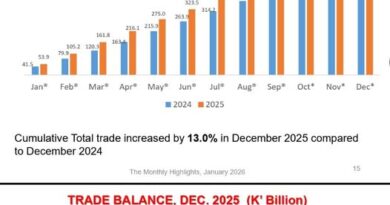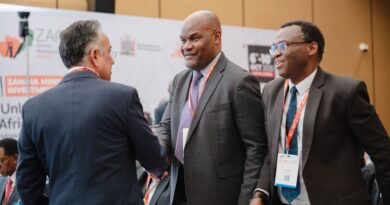Zambia’s Constitutional Amendment Process Risks Derailing Economic Gains, Expert Warns
Zambia’s proposed constitutional amendment process may pose significant threats to the country’s economic progress, according to prominent economic analyst Mr. Kelvin Chisanga.
Speaking on the potential fallout, Mr. Chisanga warned that the changes—if not strategically managed—could derail Zambia’s fragile recovery and introduce costly fiscal burdens at a critical stage of national development.
“The proposed constitutional reforms carry profound economic implications that could threaten Zambia’s current stability and growth trajectory,” Mr. Chisanga said.
He expressed concern that the amendments would trigger substantial fiscal pressures by expanding government structures and functions, leading to a spike in public financial obligations.
Among the anticipated consequences are an inflated government wage bill, higher expenditure on allowances, procurement of additional official vehicles, and increased demand for housing and operational facilities for new administrative personnel.
“What makes this particularly worrying is its timing,” he added. “We should be focusing on resolving long-standing structural challenges such as persistent energy deficits and advancing debt restructuring frameworks. Instead, we are diverting scarce public resources to administrative expansion.”
Mr. Chisanga cautioned that such a shift in priorities could siphon funding from essential sectors like education, healthcare, and infrastructure—effectively stalling or reversing long-term development gains.
While Zambia has begun to show early signs of economic resilience, Mr. Chisanga warned that the proposed amendments risk introducing new layers of political and economic instability.
“Investor confidence is highly sensitive to political uncertainty,” he noted. “With an election year approaching, constitutional changes may polarize national attention, shifting the dialogue from economic reform to political contestation.”
He concluded that unless the process is reconsidered with strategic foresight, it could become a destabilizing force—economically, politically, and socially—at a time when Zambia cannot afford any distractions from its core development agenda.



